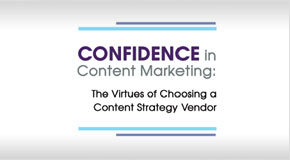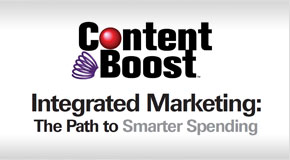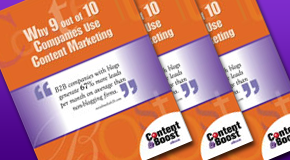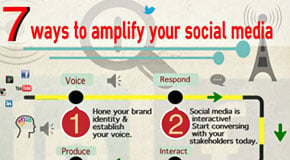In the content marketing realm, business leaders hear words that are often used interchangeably to describe tactical approaches (i.e. “campaign,” “strategy,” “blitz”). But not all of these words signify the same thing. For instance, industry pundit and Founder of the Content Marketing Institute (CMI) Joe Pulizzi recently warned readers in the June 2014 issue of CMI’s Chief Content Officer Magazine that content marketing should never be referred to as a “campaign.”
“Content marketing is not a campaign,” Pulizzi boldly states, explaining that while a campaign can be the result of a content marketing approach, it cannot encompass content marketing in and of itself. Similarly, Forrester Research notes in a March 2014 report that “content marketing efforts fail to deliver on key objectives due to the ‘campaign’ mindset that continues to pervade the marketing function.”

So, how should businesses define their content approach? Rather than create short-term campaigns, companies should strive to create solid, sustainable content marketing programs. There are a few critical reasons these two words must be differentiated, which could very well determine the likelihood of your content marketing investment succeeding:
A campaign has an end date; a program does not: A campaign is created with a final date in mind, but as any good marketer or business leader knows, robust content marketing should have an unending timeline. A campaign can be likened to the “Ceiling Effect,” where success is measured based on when one has reached what he or she feels like the highest possible point. When you reach the ceiling, however, you begin to lose momentum as you are ultimately limiting yourself. A content marketing program must be conceptualized with continuous improvements in mind. That means tweaking, changing and altering as needed as you go along.
A campaign calls for speed; a program is about consistency: According to Pulizzi, a gold-standard content marketing program must include consistent, long-form content creation and distribution. In other words, the age-old tug of war game between quality and quantity must come to an end. It’s not about speed, nor was it ever, content marketing thought leaders adamantly argue. “Effective content marketing is focused on the continuous delivery of customer value through interesting and engaging content,” adds Forrester in its aforementioned report. If your content marketing idea is built for speed—i.e. short-term impact—then you need to readjust your approach.
A campaign is about execution; a program is about strategy: When you’re so focused on immediate results, greater emphasis is placed on execution as opposed to industry-leading development and strategy, both of which a program needs to thrive. Strategy-oriented marketers are rare. Planning undoubtedly takes more time than execution—don’t be one of the marketers taking the easy way out. Make sure your strategy takes into account your key differentiators, as well as how much content you plan to deliver and which content vehicles you plan to use (i.e. blog, whitepaper, website rebranding, newsletter).
Ready to ditch your content marketing “campaign” and upgrade to a solid strategy? Click here to learn more about Content Boost’s offerings.
Edited by
Brooke Neuman















